Editorial
Press Distribution Modernisation Act, three years on
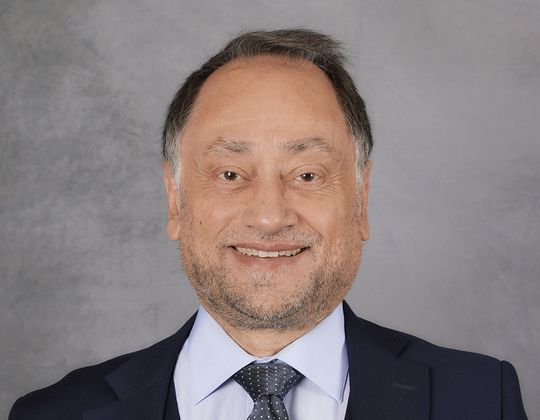
By Daniel Panetto, President of Culture Presse *
Freedom of distribution for the written press has been enshrined in French Law since 1947. This exception has enabled the development of France’s print media market, which is one of the most dynamic in the world, particularly when it comes to magazines.
On 18 October 2019, a new version of this Law reaffirmed the founding principles while also updating them. In particular, it defines print media products and gives power back to newsagents, while protecting publishers’ freedom to disseminate and pluralism.
Since then, newsagents’ right and freedom to receive a selection of press titles tailored to their shelf space and their clientele’s expectations have finally been enshrined in law. As we had hoped, a commercial dialogue is taking shape between the distributor and the newsagent based on a list of the shop’s best-selling titles. The selection of publications and a regulation of the quantities supplied will thus help our profession regain the commercial soundness it deserves.
We lost two years of progress in 2020 and 2021, due to the pandemic and the shockwaves created by the Presstalis bankruptcy. So it was not until 2022 that this Law began to be steadily implemented: trials have been conducted since the summer and expanded in the autumn, to stabilise processes and make the necessary adjustments.
The basics are in place: reforms are underway, and we are counting on our regulator to remain committed to ensuring that the sector’s stakeholders implement the Law and, especially, continue to enforce it over time.
* Union of leisure and press retailer
|
 |
Regulation in action
Manufacturers’ and vertical players’ access to 5G: progress report
Creating a new generation of smart operating theatre while providing more efficient patient care (University Hospital Institute of Strasbourg). Testing new applications requested by travellers and to meet the needs of French national railway company, SNCF, in the station and in industrial settings (SNCF Network in Rennes). Exploring use cases for new 5G frequencies for industrial customers (Capgemini in Issy-les-Moulineaux) ... Arcep has been working since 2018 to facilitate trials, access to 5G and to specific frequency bands for so-called vertical entities: manufacturers, local authorities, universities, R&D labs, etc.
Following the recommendations of the industrial 5G Task Force, which the Government entrusted to Philippe Herbert, Arcep opened a trial platform in the 3.8 – 4.0 GHz band in March. The Authority has awarded 13 trials licences thus far, covering an array of economic sectors, including manufacturing, energy and health sector companies. In addition, stakeholders wanting to deploy professional mobile network (PMR) can request long-term access to 2.6 GHz TDD frequencies via a web portal that streamlines the process for accessing those resources. More than 20 licences have been awarded to players from an equally wide range of backgrounds. To open up access to the 2.6 GHz TDD frequency band, the Government recently announced changes to the method used to calculate frequency prices, making them more affordable to a wider array of players and use cases.
If you want to develop a trial project or deploy a long-term network, please contact us!
• Platform for businesses and manufacturers’ trials in the 3.8 – 4.0 GHz band
|
 |
By the numbers
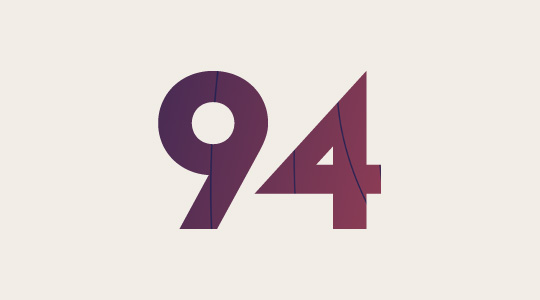
This is the average download speed, in Mbit/s, measured by Arcep on 5G-compatible mobiles and plans for the whole of Metropolitan France, marking a close to 50% increase over the average 4G speed of 63 Mbit/s. Looking at just the country’s 15 largest cities, average 5G speeds stand at 157 Mbit/s, versus 88 Mbit/s for 4G – i.e. a close to 90% increase. Follow this link for the complete findings of the 2022 Quality of Service audit of mobile operators in Metropolitan France, published by Arcep on 20 October.
|
Field notes
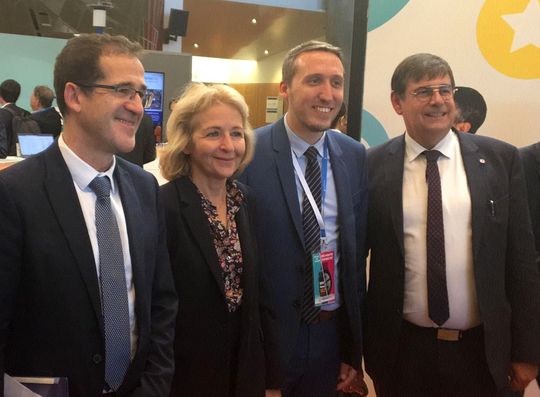
Left to right: Philippe Le Grand, President of InfraNum, Arcep Chair, Laure de La Raudière, Victor Denouvion, President of Haute-Garonne Numérique, and Patrick Chaize, President of Avicca
Arcep in the Toulouse region, on 5 and 6 October, for the Symposium on Ultrafast Access
Arcep had a booth at this major event for regional digital development stakeholders, as well as an opportunity to share its views on the issues, challenges and expectations surrounding superfast access during the talks delivered by its Chair, Laure de La Raudière, and by Ghislain Heude, Deputy Director of Fibre, Infrastructures and Territories. These keynotes provided a chance, first, to reiterate that Arcep will be especially vigilant in ensuring that the sector meets its commitments to improve the quality of fibre network operations and, second, to underscore the success of the Industrial 5G trial platform set up in the 3.8 – 4.0 GHz band, but also to explain the regulator’s role of providing a framework for the Orange copper network switch-off, guided by the need to safeguard both consumers’ interests and market competition. This trip also afforded an opportunity to meet with elected officials and local authorities, notably those from the Occitania region.
|
You hosted the Symposiums on Ultrafast Access in the Haute-Garonne; What is your initial assessment of fibre deployment in your area, and of the future outlook?

|
Victor Denouvion
President of Haute-Garonne Numérique
|
“Fibre optic deployment on the Haute-Garonne Public Initiative Network is progressing at a steady pace. Ninety percent of the network has been built. We have just overstepped the milestone of 250,000 eligible sockets, out of a total 278,000.
Sales recently reached the 120,000 subscriber mark, or close to one out of every two eligible sockets.
Our objective today is to open up the last technical areas where the sale of fibre plans has not yet begun, and to ensure a swift completion.
Another priority is our networks’ resilience. During the Symposium on Ultrafast Access we signed a Memorandum of Understanding – the first in France – with the Banque des Territoires to draft a digital infrastructure resilience blueprint that covers the area within our purview.
We now want to become more proactive about use cases.
Against the backdrop of the copper switch-off, we are going to step up public policies to support the digitally excluded. This is one of the goals of the roadmap that we are drafting with the department, inter-communal bodies and municipalities.”
|
On our radar
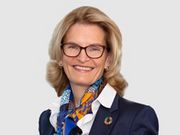
|
Doreen Bogdan-Martin
elected Secretary-General of ITU
|
Director of the International Telecommunication Union’s (ITU) Telecommunications Development Bureau (BDT) since January 2019, the American, Doreen Bogdan-Martin, was elected ITU Secretary-General by Member States during the Plenipotentiary Conference (PP-22) held from 26 September to 14 October in Bucharest (Romania). She will be the first woman in the ITU’s 157-year history to occupy this position. She will begin her four-year term of office on 1 January 2023.
Based in Geneva, the ITU was created in a bid to facilitate international connectivity in communication networks. The latest PP in Bucharest enabled Arcep and CEPT to support a draft resolution on telecommunications and ICT’s role in climate change and environmental protection. The resolution reflects many of the messages conveyed by the Authority and by administrations from across Europe.
|
|

Brussels, Arcep and you …
Smartphones and tablets’ eco-design and environmental transparency on the European Commission’s radar
As demonstrated in the joint study produced by ADEME and Arcep, devices have a major environmental impact, accounting for 80% of digital’s carbon footprint and between 64% and 92% of the sector’s overall impact on the environment (when factoring in the consumption of critical metals and minerals, the depletion of fossil fuels, etc.). To meet this challenge, the European Commission published two proposals in the autumn, aimed at improving digital devices’ sustainable design and the transparency of their environmental information.
The proposed European legislation on the sustainable eco-design of smartphones and tablets sets out multiple obligations for devices to be more easily repairable and more durable. For instance: smartphones’ batteries must be able to be recharged 1,000 times, to a capacity of at least 80%. It would also be compulsory for smartphone and tablet manufacturers to display an energy-efficiency label to enable consumers to make informed choices when purchasing their devices. A public consultation on the draft legislations ran until 28 September, and their final version will be published in the coming weeks.
|
|

Achieving digital sustainability
Digital environmental impact: a top priority for the Arcep-Arcom joint division
Obtaining a more detailed view of the environmental impact of the different ways of distributing and consuming audiovisual media in France, and producing a report every two years on the sector’s footprint; establishing a general policy framework for the sustainable design of digital services; publishing a recommendation on consumer information by television services, audiovisual media services, on-demand audiovisual media services and video sharing platforms, to inform consumers of the environmental impact of their digital consumption and viewing: these are the first workstreams on the digital environmental impact being carried out by the Arcep – Arcom joint division.
Arcep and Arcom’s plenary boards met on Monday, 26 September to take stock of the work carried out jointly by two the authorities, particularly on the digital environmental footprint, an issue on which the two authorities have been working together, in concert with ADEME, since 2021.
This work follows through on the tasks entrusted to the authorities by the legislature, as part of the “Climate and Resilience” Act and the Act on reducing the digital environmental footprint in France, adopted in the second half of 2021. The two authorities’ ongoing exchange of experience and complementary knowledge will enable them to tackle these issues in an ongoing fashion.
|
|

Pass it along!
Social media: putting users first!
“We are the social networks”: this is the belief and title of the book co-written by Serge Abiteboul, Arcep Board member, Director of Research at Inria and at ENS Paris, and Jean Cattan, Secretary-General of the Conseil national du numérique (advisory committee on digital affairs), being published by Éditions Odile Jacob. In it, they argue that “social networks will be what we make of them” and propose a new, more participatory, regulatory model. A belief that seems to be shared by the Conseil d’État in the 2022 edition of its annual report, titled “Social media: make it user-centric”. The institution sets forth 17 proposals “to shift the balance of power towards users, to give public authorities the weapons they need to be effective regulators, and to think about tomorrow”.
|
News from around the world
Optical fibre: number one superfast access technology in OECD countries
Optical fibre has become the number one superfast access technology in the 38 OECD (Organisation for Economic Cooperation and Development) member countries, according the latest data published by the institution in July. After a dramatic surge in 2021, fibre subscriptions increased by an average 18%, while the number of cable subscriptions decreased by 0.5%.
Fibre’s share (not including FTTC and FTTN) of total superfast access lines is now equal to or above 50% in 13 OECD countries. Inequalities do still exist, however, including in Europe. In Italy, Germany, the UK, Austria, Belgium and Greece, where fibre is less prevalent, the gap can be attributed to geographical constraints as well as national policies. France, with a very proactive strategy and the target of achieving full nationwide fibre coverage in 2022, is in 15th place, above the OECD average. In its June 2022 Observatory, Arcep had even revealed that fibre (FttH) now accounted for the majority of internet subscriptions in France.
|
Arcep, telling it like it is
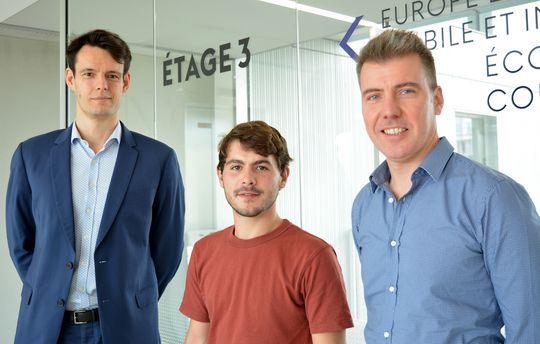
Mobile QoS team: left to right, Guillaume Decorzent, Axel Piau and Gabriel Aubert
2022 mobile quality of service measurement campaign
Every year, Arcep calls out outside service providers to carry out its mobile quality of service audit. In 2022, dozens of technicians outfitted with large backpacks containing eight devices (4G and 5G mobiles for all four operators), plus a terminal for uploading the data, travelled across every department, to more than 2,000 locations in all, and along dozens of roads and railway lines (all kept secret), taking more than a million 2G, 3G, 4G and 5G measurements. The sample reflects the diversity of user situations: high and medium-density and rural areas, motorways, trains and metros. The services tested also encompass the variety of the user experience: voice quality, text reception quality, web browsing, file transfer and video streaming quality.
The tests performed also adhere to a strict protocol set out by Arcep, which QoS testing players and local authorities can adopt to conduct their own tests. A great deal of attention is given to ensuring these field campaigns are conducted properly. The 2022 campaign, which ran from June to August, had to contend with severe heatwaves. To prevent the devices from overheating, and potentially affecting their performance – which is possible when a mobile phone’s temperature exceeds 42°C – Arcep decided to perform the tests in the morning and avoid non air-conditioned transportation. All of the data are then integrated into the Mon réseau mobile (My mobile network) website, which allows users to compare the quality of each operator’s mobile services, and choose the one that is right for them.
|
|

Mark your calendars
24 November 2022, Paris
Press conference: status report on efforts to achieve digital sustainability
Associations, institutions, operators, tech companies, experts, journalists are invited to attend the press conference being held at 2 pm on 24 November, in person and online, to be briefed on the latest progress and ongoing work being carried out through our “Achieving digital sustainability” platform (by invitation only, space is limited).
14 December 2022, Paris
Arcep’s 2023 New Year’s greetings
Save the date! Arcep’s traditional New Year’s greetings ceremony will be held on 14 December this year. After a two-year absence due to Covid, the event will once again be taking place at the Sorbonne, starting at 6 pm (by invitation only, with a limited number of places).
|
|

We’ll be there
10 – 11 November 2022, Mauritius
Fratel Annual meeting
At the invitation of the Information and Communications Technologies Authority (ICTA) of Mauritius, the network of French-speaking telecoms regulators (Fratel) will be holding its annual meeting on 10 and 11 November in Balaclava, this year focusing on the topic: “Challenges and ways to improve telecom networks’ resilience and security”. Arcep Chair, Laure de La Raudière, will be attending the meeting, after which she will travel to Mayotte on 14 and 15 November, and to Reunion on 15 and 16 November. The goal: to talk about fixed and mobile connectivity in those territories with local authorities.
• Find out more
22 – 23 November 2022, Paris
Avicca Autumn TRIP
The copper network switch-off will be the core theme of the roundtables and discussions of the upcoming Avicca autumn TRIP, taking place on 22 and 23 November at the Institut Pasteur Conference Centre in Paris. Laure de La Raudière will deliver a keynote at 5.40 pm on the 22nd. At 2 pm on the 23rd, Ghislain Heude, Arcep’s Deputy Director of Fibre, Infrastructures and Territories, will participate in a roundtable dedicated to answering the question: “Should complete FttH coverage remain a prerequisite to a complete copper switch-off?”
• Find out more
22 – 24 November 2022, Paris
104th AMF symposium
“The Power to Act” will be the common thread running through the 104th symposium of the Association of mayors and metropolitan area presidents of France (AMF), taking place from 21 to 24 November at the Parc des expositions de la Porte de Versailles, with more than 10,000 local elected officials expected to attend. At 10 am on 22 November, Ghislain Heude, Arcep’s Deputy Director of Fibre, Infrastructures and Territories, will be taking part in a briefing on “Keys to preparing for the copper network switch-off”.
• Find out more
5 December 2022, online and live in Paris
Internet Governance Forum France
Created to generate a dialogue between multiple stakeholders on internet governance and net neutrality, the Internet Governance Forum (IGF) France, a national initiative supported by IGF World, will be held online and in person on 5 December. Laure de La Raudière will be participating in the Forum’s closing roundtable, devoted to the digital environmental footprint.
• Find out more
8 December, Prague
BEREC Plenary meeting
The 53rd BEREC plenary meeting will be taking place on 8 and 9 December in Prague, in the Czech Republic. Arcep Chair, Laure de La Raudière, and Arcep Board member and BEREC Vice-Chair, Emmanuel Gabla, will be attending the meeting. On the agenda: approval of the BEREC work programme for 2023, which will be subject to a public consultation.
• Find out more
|
|
|